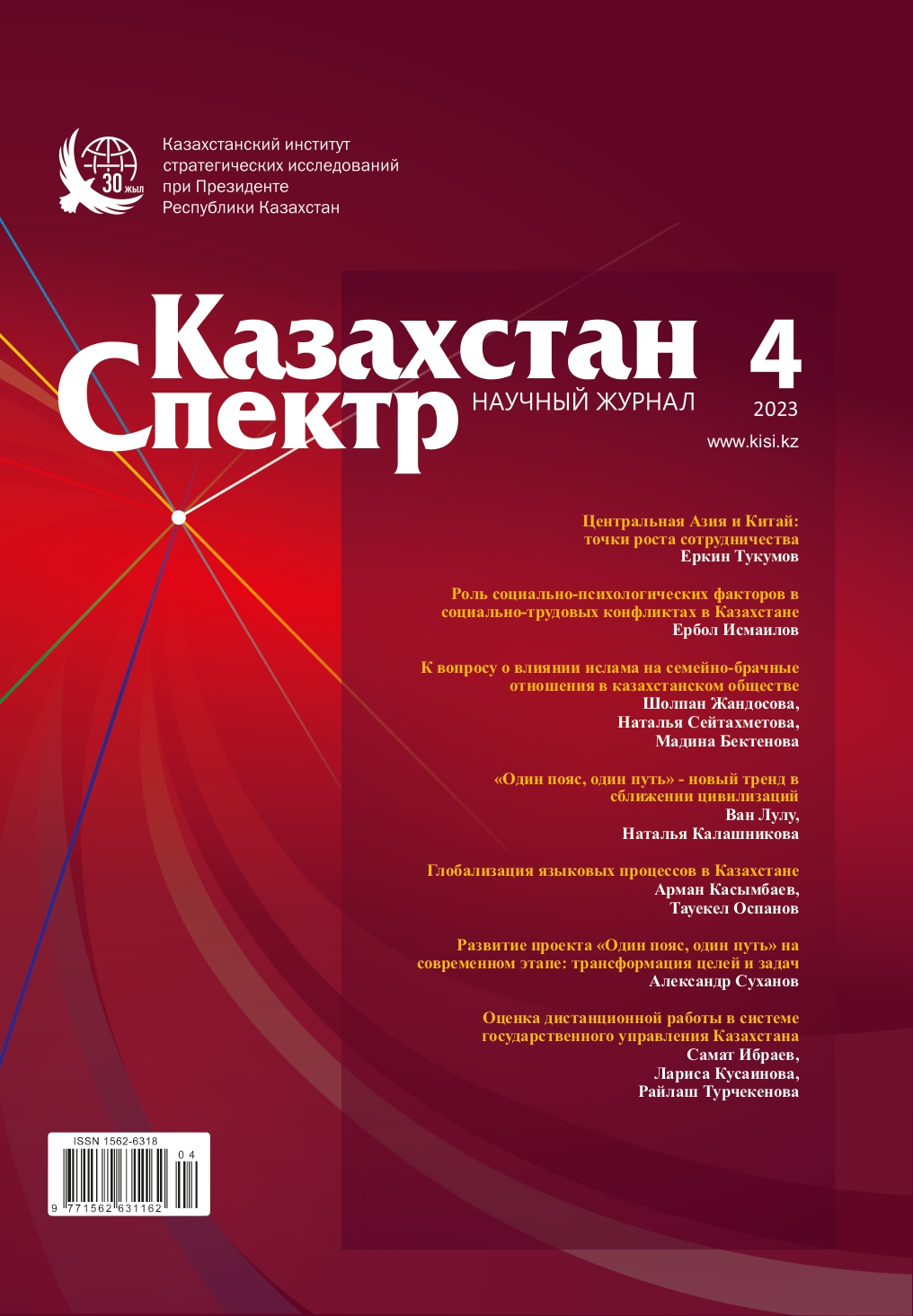Abstract
There is a clear and rapid increase in the number of social and labor conflicts in Kazakhstan. The purpose of this article is to analyze the main factors contributing to their occurrence and to identify the significance of socio-psychological factors in their hierarchy. The data collection method includes an expert survey conducted in Kazakhstan, an analysis of demands communicated by Kazakhstan's employees during strikes in 2021-2022, as published in Kazakhstan's media, and a series of in-depth interviews with employees of the extractive sector enterprises.
One of the main conclusions is that currently there is an underestimation of importance of the contribution of companies-employers to the development of settlement infrastructure, in the structure of those factors that determine the emergence of social and labor conflicts in the country. This factor, in my opinion, should be considered as a factor of the socio-psychological nature, along with the role of management and the psychological climate in the team. It is worth noting that, first and foremost, we are talking about the activities of large industrial companies with the foreign participation.
The significance of the first two factors - management and psychological climate in the team - is recognized by domestic experts and, to some extent, by employees. For the current moment, the grand total understanding of companies' contribution significance to their operation spheres as at least important indicator reflecting on the growth of social tension among the companies employees as well, is practically nonexistent even at the level of the country's expert community. This factor is not reflected in the demands of the striking employees, who predominantly have economic motivations. Nevertheless, it is tracked through a more detailed examination of the situation and the data obtained.

This work is licensed under a Creative Commons Attribution 4.0 International License.
Copyright (c) 2023 Kazakhstan-Spectrum


